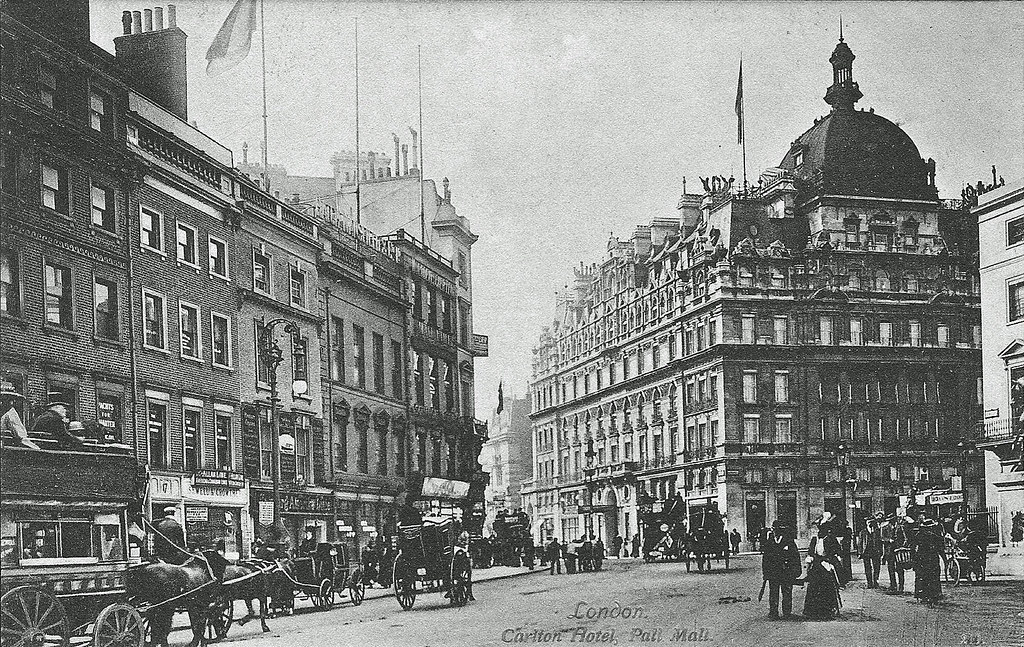I focused attention on unusual street names awhile ago. That theme played itself out over time so I left it behind for the most part. However, every once in awhile, I come across something interesting enough to mention on Twelve Mile Circle.
This time it appeared in Texas. What was it about Texas? Once I found a subdivision with streets named after South Park characters. This time I found something stuck in an even earlier period of time, probably the 1940’s or 1950’s.
Cigarettes had a positive image back then. Sometimes advertisers even promoted alleged health benefits (e.g., “More Doctors Smoke Camels than Any Other Brand“). So in that context, perhaps, a subdivision with streets named for cigarette brands might have seemed like a good idea.
Cigarette Hill
Cigarette Hill; Dallas, Texas
Imagine the possibilities. Someone could live on Pall Mall Avenue, Camel Court, or Kool Avenue. Lucky Street seemed to be a stand-in for Lucky Strike. Maybe Durham referenced Bull Durham tobacco. I also spotted a Fatima Avenue. I’d never heard of Fatima cigarettes although they used to be quite popular. Liggett & Myers launched the brand in 1913 to capitalize on the popularity of Turkish tobacco. Fatima faded as the century progressed. It disappeared completely by the 1980’s.
The neighborhood earned its nickname honestly: Cigarette Hill.
Hard Times on the Hill
Cigarette Hill existed in a time warp just like the vintage cigarette brands of its street names. Its residents lived in poverty with a median household income of less than $15,000 in 2014 [link no longer works]. It also became a highly segregated neighborhood with an overwhelmingly (88.6%) African American population.
Ripple Road also traversed Cigarette Hill. Perhaps it existed as a coincidence or perhaps not. Ripple was an old type of particularly nasty, cheap fortified wine. The television character Fred Sanford (played by Redd Foxx) considered Ripple his favorite drink. It gained “a reputation as a drink for alcoholics and the destitute.”
By 2008, the City of Dallas recognized that Cigarette Hill and the larger Lancaster Corridor needed help. The local NBC television station reported on the situation that led to a Community Revitalization Plan.
“…the neighborhood in the middle of the City of Dallas seems like a piece of old rural Texas. Residents complain the neighborhood has been overlooked for decades with no sidewalks, no storm sewers, few streetlights, and overgrown roads to name just a few problems… The Cigarette Hill area is very close to other Southern Dallas neighborhoods that have proper lighting, wider streets and complete sidewalks.”
Still, it held a lot of promise. Cigarette Hill had ready access to employment centers and a Dallas Area Rapid Transit (DART) rail station. It also offered scenic views from its elevated position. Revitalization efforts still continue.
Cigarettes in Sterling Heights
I found another cigarette subdivision in Sterling Heights, Michigan. Residents there could choose from Camel, Pall Mall, Parliament, Winston, Newport and Viceroy Drives. Ironically, it also included a Tarry drive (which by one definition meant “covered with tar“). I supposed a street surrounded by cigarettes would eventually become tarry as a result. Unfortunately I couldn’t find anything else about this neighborhood beyond its themed street names. It seemed from Google Street View that the houses probably dated from the 1950’s or 1960’s based on their architecture.
Pall Mall

I found myself with a little extra room left in this article. Maybe I should take a look at one of those old-timey cigarette brands. What inspired the naming of Pall Mall, I wondered?
The mystery solved itself pretty quickly. Pall Mall is a street in London, England (map). It connected St. James’s Street to Trafalgar Square, running past St. James’s Square. The 18th Century brought a lot of wealthy people to Pall Mall who lived in ornate mansions there. It also became known for art galleries and auctioneers. It didn’t take a lot of effort to see why a cigarette brand would emulate its name. Obviously it wanted to trade on the high-class status of London’s Pall Mall, a good bit removed from its later namesake on Cigarette Hill.
Reaching back farther, the street got its name from a lawn game. Pall mall — the game — grew in popularity during 16th Century. Later it evolved into croquet. The street ran along an area that once hosted a popular pall mall field. First came the game, then came the street, then came the cigarette brand, and finally the cigarette-themed neighborhoods.

Leave a Reply